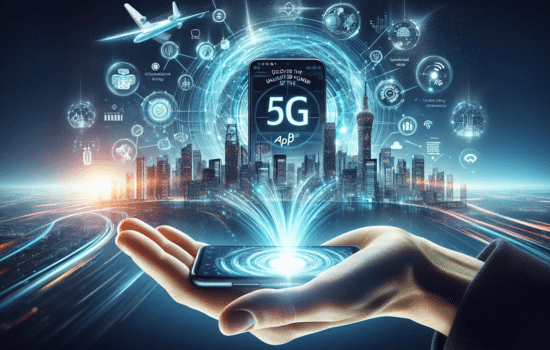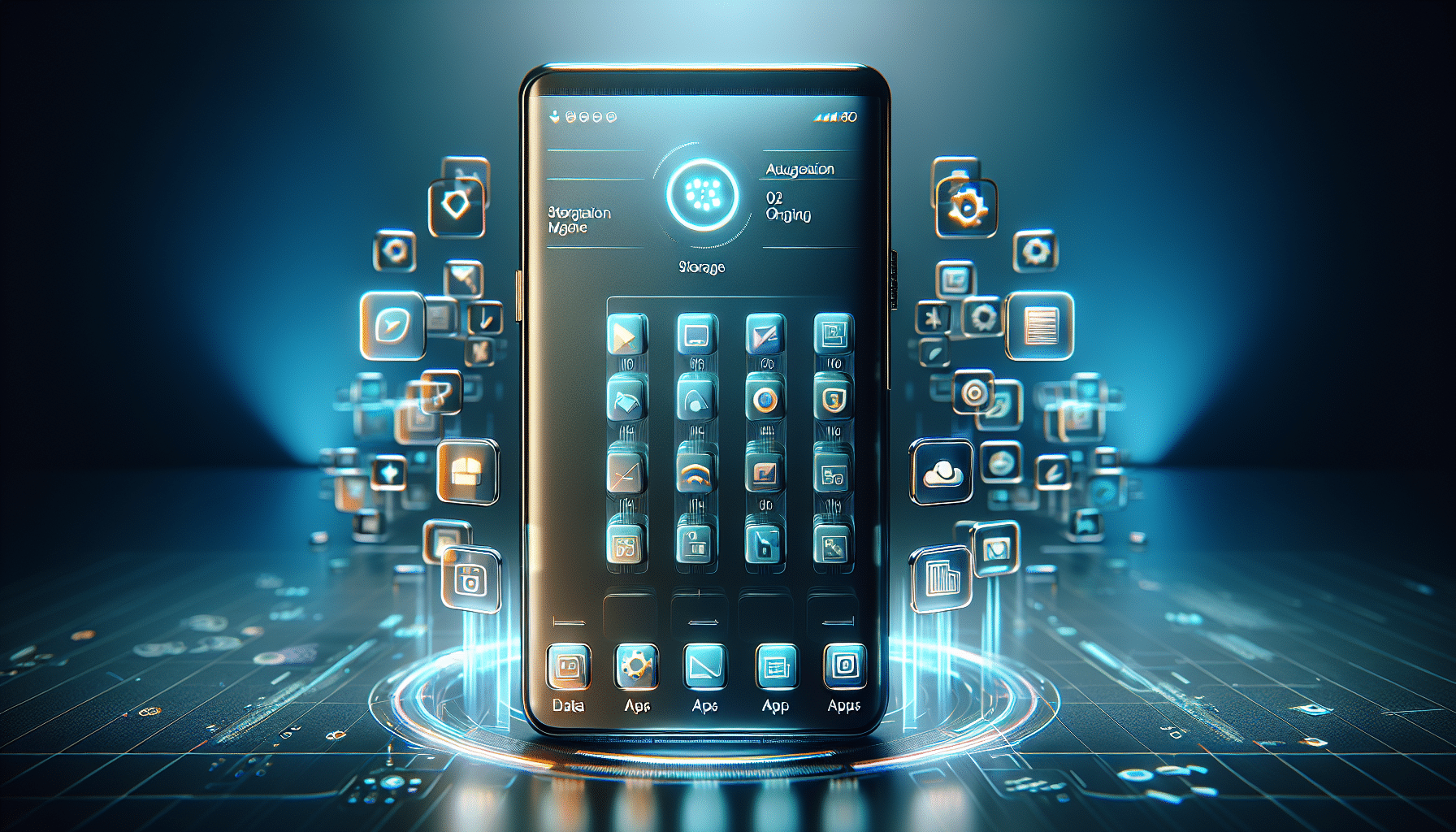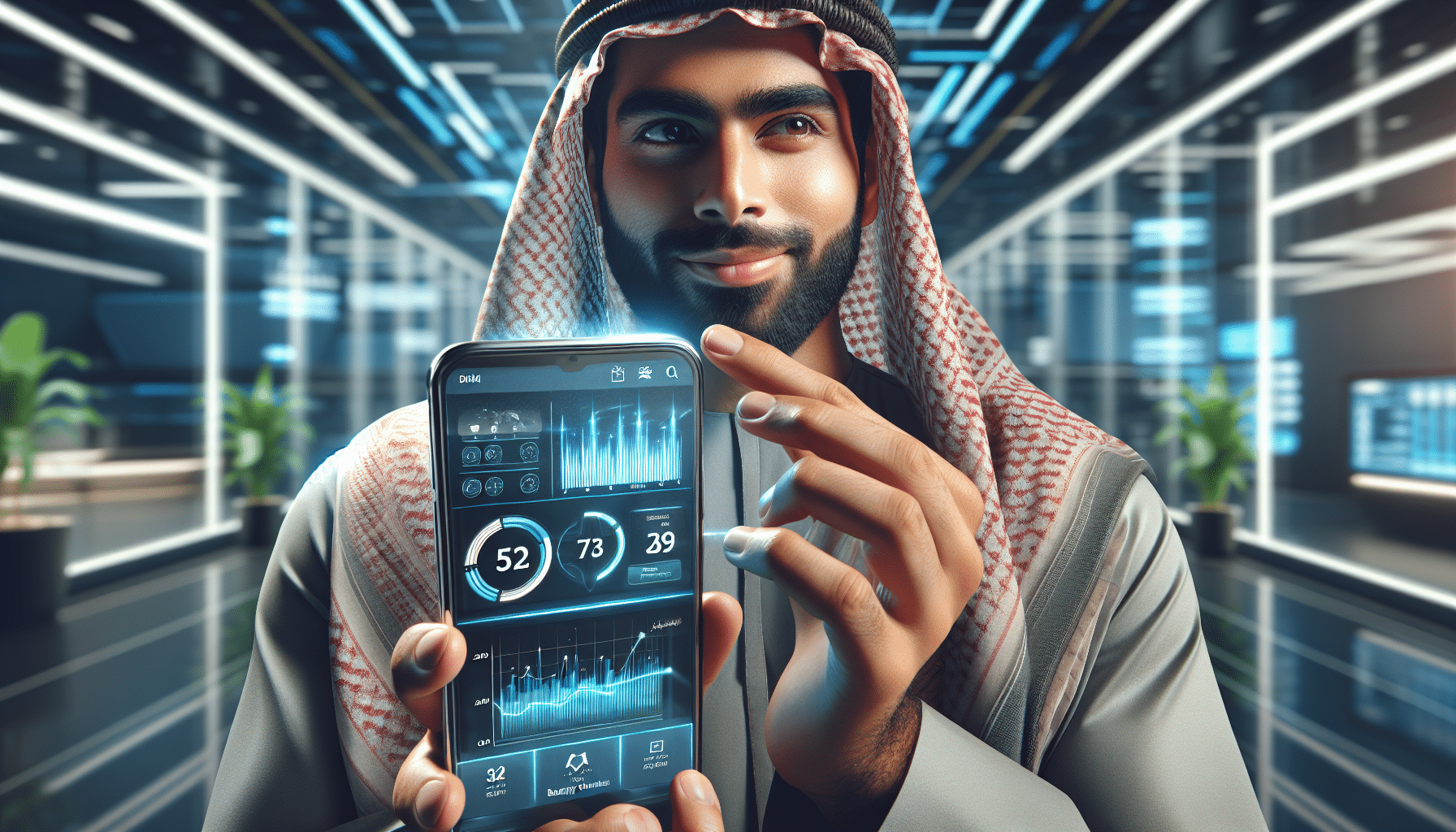Advertisements
In the digital age, where speed and efficiency are paramount, the 5G application emerges as a technological revolution that transforms the way we interact with the world.
This groundbreaking advancement not only promises blazing-fast download speeds, but completely redefines connectivity, delivering an unprecedented experience in the palm of your hand.
Advertisements
The ability to stream data in real time, conduct seamless video conferencing, and enjoy augmented reality applications with astonishing fluidity becomes an everyday reality thanks to the power of 5G.
This 5G application not only improves connection speed, but also expands the possibilities for interaction between devices, opening the door to a more robust and efficient Internet of Things (IoT) ecosystem.
Advertisements
From smart homes to connected cities, 5G integration enables multiple devices to work together harmoniously, improving quality of life and optimizing resources.
Low latency and high responsiveness ensure seamless communication, essential in critical sectors such as healthcare and automotive.
See also:
- Enjoy your free movies and series!
- Learn to knit with our specialized app
- Connect to the future with revolutionary 5G
- Master the trumpet with our app!
- Learn English easily with the best app
As the world adapts to this new era of hyperconnectivity, it's critical to understand how 5G applications impact various aspects of our daily lives.
We'll explore its practical applications, its impact on different industries, and how this technology can be leveraged to drive innovation.
Get ready to discover how 5G is shaping the future of global connectivity, transforming challenges into opportunities and boosting efficiency to unprecedented levels.
The speed revolution: The potential of 5G
The arrival of 5G promises to revolutionize the way we connect to the internet and consume information. This technology brings with it unprecedented connection speeds that surpass those of its predecessors, 3G and 4G.
5G's ability to transmit data at rates that can reach 10 gigabits per second (Gbps) represents a significant change in the user experience, enabling high-quality content downloads in seconds and seamless 4K video streaming.
The impact of this speed extends beyond personal entertainment. Sectors such as telemedicine, distance learning, and remote work will experience significant advancements thanks to 5G.
For example, doctors will be able to perform remote consultations and surgeries with minimal latency, improving care in remote areas.
Students will also be able to access high-quality educational resources from anywhere, eliminating geographical and economic barriers.
In addition, 5G promises to improve efficiency in data traffic management, enabling seamless connectivity even in densely populated areas.
During mass events, such as concerts or football matches, 5G will ensure that thousands of people can share their experiences in real time without delays or connection interruptions.
This change will not only improve the user experience, but also open up new opportunities for businesses and app developers.
Unlimited Connectivity: The Future of the Internet of Things (IoT)
5G is not just about speed, but also about enhanced connectivity that promises to transform the Internet of Things (IoT).
5G's ability to support a large number of simultaneously connected devices is crucial for the development of the IoT, where more and more everyday objects will be interconnected and automated.
This technology will enable more efficient and effective communication between devices, from smart home appliances to autonomous vehicles.
In the home, for example, 5G is expected to facilitate the integration of devices such as thermostats, security cameras, and lighting systems, which can be controlled centrally and in real time from a smartphone or tablet.
This automation not only offers convenience, but can also contribute to more efficient energy use and cost reduction.
In the industrial sector, 5G will boost the connectivity of sensors and machinery in smart factories, optimizing production processes and reducing downtime.
Autonomous vehicles, on the other hand, will benefit from faster and more reliable communication with road infrastructure and other vehicles, improving transportation safety and efficiency.
Energy efficiency and sustainability: The impact of 5G
Energy efficiency is one of the less-discussed but crucial advantages of 5G. This technology not only enables faster and more efficient connections, but also reduces power consumption compared to previous generations.
Thanks to its advanced architecture, 5G is capable of operating more efficiently, allowing connected devices to use less power to transmit the same amount of data.
This improvement in energy efficiency translates into longer battery life for mobile devices, which is especially important in a world increasingly dependent on smartphones and wearables.
Additionally, 5G's lower latency reduces the need for constant data processing, which also contributes to more efficient energy use.
5G's impact on sustainability extends beyond energy savings. By facilitating automation and connectivity across various sectors, 5G has the potential to reduce carbon emissions.
For example, in the transportation sector, efficient communication between vehicles and infrastructure can reduce travel times and fuel consumption, thereby reducing the carbon footprint.
Security challenges and considerations in the 5G environment
Despite its many advantages, 5G implementation is not without its challenges, especially in terms of security.
The highly connected nature of 5G increases the attack surface for cybercriminals, who could exploit network vulnerabilities to access personal data or disrupt critical services.
Security in the 5G environment requires a comprehensive approach that involves not only protecting data in transit but also implementing robust security measures on connected devices.
Device manufacturers and service providers must collaborate to develop security solutions that protect network integrity and user data.
Furthermore, the large number of connected devices in a 5G environment poses additional challenges in terms of management and security maintenance.
It is crucial for organizations to adopt proactive cybersecurity practices, such as regularly updating software and implementing strong authentication mechanisms.
On the other hand, user privacy is a growing concern in the 5G environment. 5G's ability to collect and analyze vast amounts of data raises questions about how this data is used and protected.
Lawmakers and regulators will need to establish clear legal frameworks to ensure user privacy is protected in this new era of connectivity.
The role of 5G in the digital economy
5G is poised to play a crucial role in driving the digital economy, generating new business opportunities and transforming existing industries.
This technology's ability to deliver fast and reliable connectivity is a catalyst for innovation, enabling the development of new products and services that were previously unimaginable.
In the business world, 5G will facilitate the adoption of emerging technologies such as artificial intelligence (AI), augmented reality (AR), and virtual reality (VR).
These technologies, enabled by 5G, will transform the way businesses interact with customers, offering more personalized and immersive experiences.
For example, retail stores could use AR to provide customers with an interactive shopping experience from the comfort of their homes.
In the industrial sector, 5G will enable greater automation and efficiency in the supply chain, optimizing production and reducing costs.
Real-time communication between machines and systems will enable faster responses to market demands, improving companies' competitiveness.
5G will also boost job creation in technology-related sectors such as software development, cybersecurity, and data management.
As businesses adopt 5G, there will be a growing demand for professionals skilled in implementing and managing this technology, contributing to economic growth and job creation.

Conclusion
In conclusion, the 5G application represents a monumental advancement in the world of digital connectivity, delivering unprecedented speed, energy efficiency, and enhanced connectivity that transforms our interactions with technology.
This technology not only revolutionizes the individual user experience, enabling ultra-fast downloads and high-quality streaming, but also has the potential to change the landscape of entire sectors such as telemedicine, education, and remote work.
With its ability to support multiple devices simultaneously, 5G is driving the Internet of Things (IoT), promoting automation in smart homes and factories, and improving the safety and efficiency of autonomous vehicles.
On the other hand, the impact of 5G on energy efficiency and sustainability is significant, enabling lower energy consumption and reducing carbon emissions in key sectors such as transportation and agriculture.
However, with these advantages come challenges, particularly in the areas of cybersecurity and data privacy.
It is crucial that stakeholders work together to develop robust security solutions and legal frameworks that protect users.
Ultimately, 5G is poised to be a key driver of the digital economy, catalyzing innovation and creating new business opportunities.
With its ability to enable emerging technologies like artificial intelligence and augmented reality, 5G redefines how businesses operate and interact with consumers, paving the way for a more connected and efficient future.
Download the applications here:
Internet Speed Master – Android/iOS
Network Signal Speed Booster – Android




